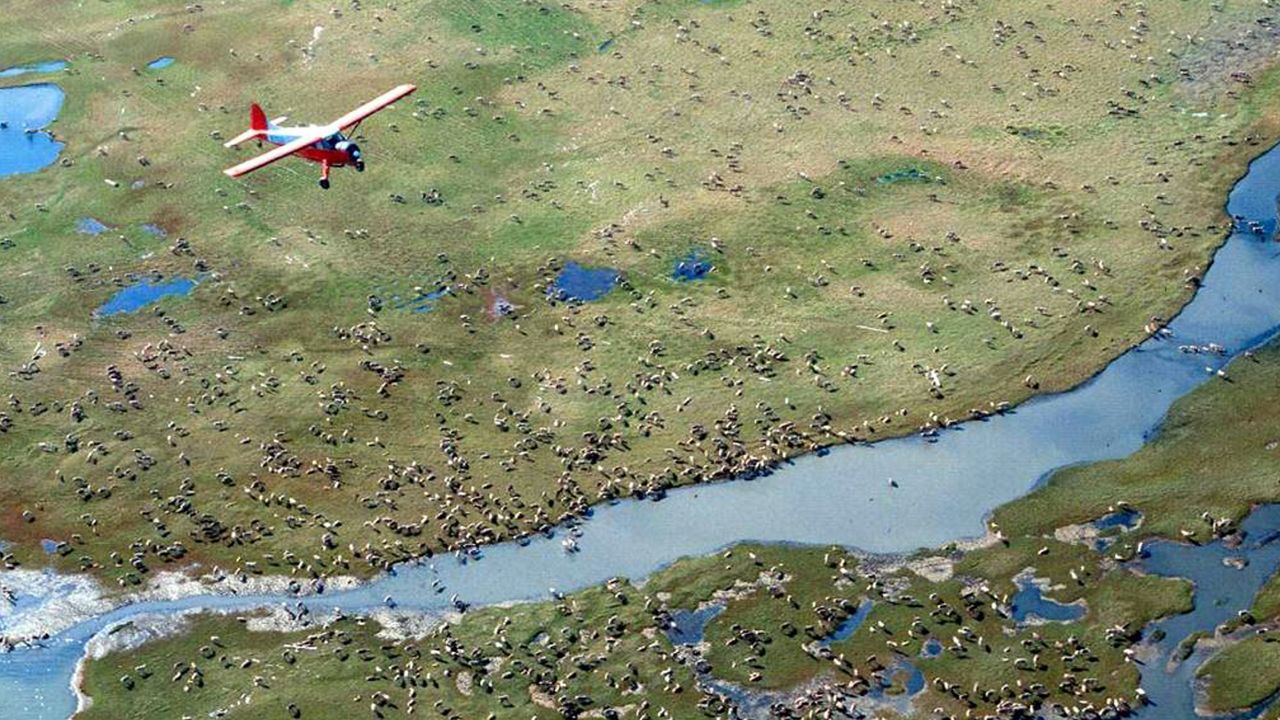As of Tuesday, oil and gas companies can begin picking which parts of the Arctic National Wildlife Refuge in Alaska they want for drilling.
The Trump administration announced Monday that it would begin the process of auctioning off the development rights to parcels of land in what many critics see as a last-ditch effort to lock in more drilling contracts before Joe Biden takes office in January.
Biden has pledged to ban new oil and gas permits on public lands and waters, writing on his campaign website that he would permanently protect the Arctic National Wildlife Refuge “and other areas impacted by President Trump’s attack on federal lands.”
Alaska’s Bureau of Land Management on Tuesday published a “call for nominations,” in essence a request for suggestions “on tracts within the Coastal Plain (CP) of the Arctic National Wildlife Refuge that may be offered for lease in the upcoming CP Oil and Gas Lease Sale.”
The agency is also seeking comments on whether tract sizes should be reduced and whether any should receive special considerations. Applicants have until Dec. 17 to submit their nominations.
The parcels of available land are near Alaska’s northeastern border on the coast of the Beaufort Sea.
Chad Padgett, state director for the U.S. Bureau of Land Management for Alaska, said hearing from industry on which tracts to make available “is vital in conducting a successful lease sale.”
Alaska political leaders, including the state’s Republican congressional delegation, celebrated in 2017 the passage of legislation allowing for drilling within the refuge’s roughly 1.5 million-acre coastal plain, seeing it as a way to boost oil production, create jobs and generate royalties. The legislation calls for two lease sales of the Arctic refuge, the first of which was scheduled on or by the end of 2021.
Oil has long been Alaska’s economic lifeblood, though production is a fraction of what it was at its peak in the late 1980s. The state has lost more than 3,000 jobs in the oil and gas industry since January because of the coronavirus pandemic and falling prices, according to the Alaska Department of Labor and Workforce Development.
Supporters of opening parts of the refuge for drilling hope it may bring badly-needed jobs back to the area, although many are skeptical that the state can push through a lease sale in the nearly two months left of Trump’s presidency.
“We’ll wait to see what the reaction is from industry,” said Kara Moriarty, president and CEO of the Alaska Oil and Gas Association. “Obviously we’ve long supported having the opportunity to have lease sales on federal land whether it’s the coastal plain or not. We’ll wait to see how the process unfolds over the next 30 to 60 days.”
But some experts say that because oil prices are now stagnant, it may be hard to convince corporations to fund drilling expeditions.
Environmental activists are staunchly opposed to new drilling leases, saying it has the potential of irreversibly damaging the local ecosystem.
“We could see the end of polar bears on the coastal plain of the Arctic National Wildlife Refuge in our lifetimes,” warned Jamie Rappaport Clark, president and chief executive of Defenders of Wildlife, in a statement. “Oil drilling in critical coastal habitat in an increasingly warming Arctic could wipe out the Southern Beaufort population of polar bears from the United States.”
Adam Kolton, executive director of the Alaska Wilderness League, said a lease sale is “one more box the Trump administration is trying to check off for its oil industry allies before vacating the White House in January.”
“Arctic Refuge drilling has never made sense from a climate change, human rights or wildlife protection perspective, and with continued volatility in oil markets and major U.S. and international banks unwilling to invest in Arctic oil, the economic argument no longer holds water either,” he said in a statement.
The Associated Press contributed to this report.



